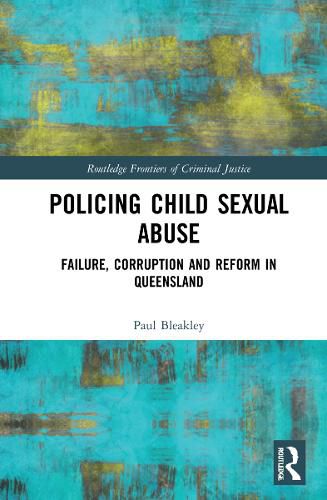Readings Newsletter
Become a Readings Member to make your shopping experience even easier.
Sign in or sign up for free!
You’re not far away from qualifying for FREE standard shipping within Australia
You’ve qualified for FREE standard shipping within Australia
The cart is loading…






Policing Child Sexual Abuse provides a historical overview of the evolution of policing child sexual abuse in Queensland, tracing a legacy of failure (even corruption) in the decades leading up to the foundation of Taskforce Argos, a branch of the Queensland Police Service created in part as a response to criticisms of police shortcomings in this area.
-uses a combination of archival and open-source material to trace the shifting approach to policing child sexual abuse
-acts as a case study of how a police force with such a negative track record in policing this area was able to correct its path and reform its practices, to the point that it could emerge as a world-leader in policing CSA
Demonstrating how, even in contexts where police responses to CSA have been met with significant criticism, an opportunity still exists to reject historical failures in favour of a renewed commitment to proactive policing of CSA, this book will be of great interest to scholars of policing, historical criminology and child sexual abuse.
$9.00 standard shipping within Australia
FREE standard shipping within Australia for orders over $100.00
Express & International shipping calculated at checkout
Policing Child Sexual Abuse provides a historical overview of the evolution of policing child sexual abuse in Queensland, tracing a legacy of failure (even corruption) in the decades leading up to the foundation of Taskforce Argos, a branch of the Queensland Police Service created in part as a response to criticisms of police shortcomings in this area.
-uses a combination of archival and open-source material to trace the shifting approach to policing child sexual abuse
-acts as a case study of how a police force with such a negative track record in policing this area was able to correct its path and reform its practices, to the point that it could emerge as a world-leader in policing CSA
Demonstrating how, even in contexts where police responses to CSA have been met with significant criticism, an opportunity still exists to reject historical failures in favour of a renewed commitment to proactive policing of CSA, this book will be of great interest to scholars of policing, historical criminology and child sexual abuse.